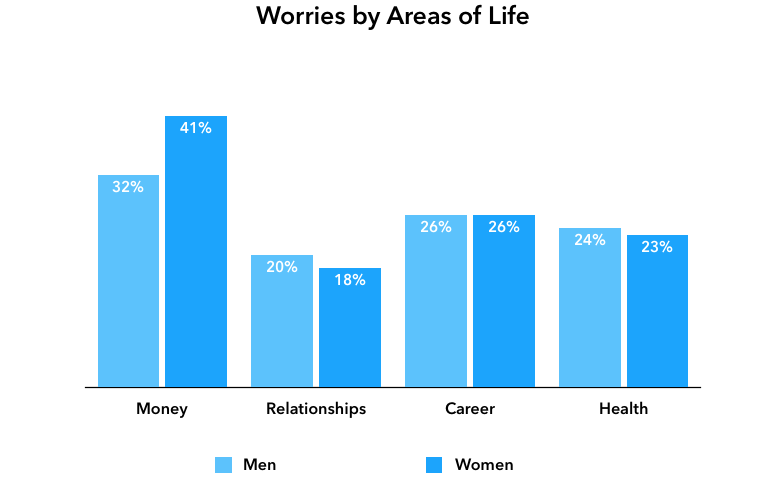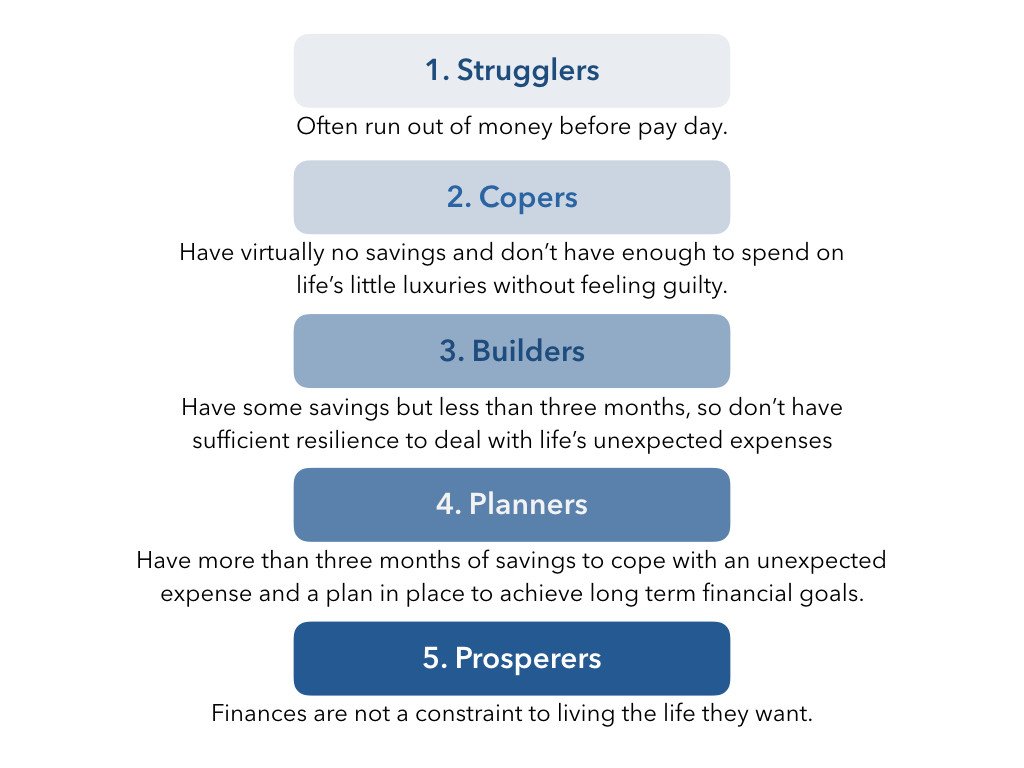Understanding Financial Wellbeing
They say that money isn’t everything, however, our financial situation has the potential to have a huge impact on both our mental and physical wellbeing. Having conversations about the state of our finances is something that we’re generally not very good at. It’s a taboo topic that a lot of people struggle to discuss, even with those they’re closest to. In this blog we’re going to focus on the impacts of financial wellbeing, how poor financial wellbeing can have a knock on effect on workplace performance and how it can impact organisations as a whole.
Financial wellbeing refers to how much control we feel we have over our finances, how able we feel we can meet financial goals and how able we feel we can respond to unexpected financial expenses, should they arise. According to the 2020 Salary Finance Survey, worrying about money was the biggest source of stress for the working British population, with the average worker spending 3 hours per week dealing with financial issues.
As you can see from the chart above, money trumps all other areas of life when it comes to worries, with women worrying significantly more than men about their finances.
Nearly one-third of the people surveyed confessed to regularly running out of money before payday and as a result, said they were more likely to suffer sleepless nights, see the quality of their work suffer and have troubled relationships with work colleagues. These people were also four times more likely to be suffering from mental health problems than those who felt positive about the state of their finances. According to the survey results, individuals with financial worries are 4.1 times more likely to be suffering from anxiety, and 4.6 times more likely to be suffering from depression.
Categorising Individuals by ‘Financial Fitness’
It is a common misconception that the higher someones salary, the less likely they are to have financial worries. Although this may be true for some, interestingly, the survey found that there was no difference in the level of financial worries between those that earn less than £10k per annum and those who earned over £100k. This suggests that higher pay doesn’t necessarily protect people from lower financial wellbeing; the way in which they handle their finances and what they spend their money on plays an important part.
To highlight this point, the survey authors divided respondents into 5 categories based on their answers to questions about their spending, saving and buying habits; or their financial fitness.
Openness to Talk About Money
According to the survey results, certain categories felt more comfortable talking about their financial situation than others, however, how comfortable they felt, depended on who they were talking to.
As you would presume, those who had a healthier financial fitness were the most comfortable talking about their personal finances, and those who’s financial situation wasn’t as healthy, were less comfortable talking about their financial situation. When it comes to who they were talking to, every category said they would be most comfortable talking to their partner; followed by family, and then friends. Interestingly, the majority of the categories said they would rather not talk to anybody than speak to their colleagues about money matters.
Impact on Work Performance
The salary finance survey authors have summed up the impact of financial wellbeing on work performance quite nicely in the image below. It also highlights the knock-on effect financial worries have on organisations as a whole. When everything is added up, the impact on organisations can be huge!
What Organisations can do to Help
When it comes to having a financial wellbeing programme in place within your organisation, it is not necessarily down to educating people on finances and what actions they need to take to improve their current situation. The research shows that people already know what they need to do to improve their financial situations; they just need a bit of help in making the changes - this is where organisations can help.
The majority of organisations will offer certain money saving employee benefits such as cycle to work schemes, childcare vouchers, private healthcare and discounted gym memberships. This is all well and good, but these kind of benefits don’t necessarily benefit the employees with the lowest financial wellbeing.
Salary-Linked Benefits
Salary-linked benefits are those that can help employees to achieve greater financial wellbeing and reducing the worries that come with having poor financial wellbeing. Examples of salary linked-benefits that organisations can offer to their employees include:
Low-cost loans
Advance on salary
Instant access savings
Critical illness cover
Income Protection
Offering such benefits can help to reduce the negative consequences employees can experience because of financial worries such as debt and unexpected costs, and as a result, reduce the financial impact on the organisation as a whole. To put this into perspective, lets see how offering employees low-cost or zero interest loans can make a difference to their financial wellbeing and as a result, their mental health.
Implementing a Financial Wellbeing Programme
As you can see, introducing salary-linked benefits can really benefit both employees and organisations. Salary-linked benefits can be introduced as part of a financial wellbeing programme. Organisations can take the following steps in order to implement a programme such as this successfully.
1. Identify a need
Ensure that there is a business need for introducing a financial wellbeing programme. Calculate the impact of poor financial wellbeing on the organisation and whether a programme can fit into the organisations goals and priorities.
2. Ensure it fits in with your Workforce
If you are going to introduce a financial wellbeing programme, carry out some research first to establish the employees that require the most financial support, and mould your programme around their needs.
3. Culture Change
As we’ve seen from the statistics highlighted in this pathway, those within the lower financial wellbeing categories are the least likely to talk about their financial situation, and people would rather not talk to anyone about their finances, than talk about them with their colleagues! Introducing a culture where employees feel like they can talk openly and confidentially about their finances in the workplace will not only help them, but also help the organisation identify which employees need the most support.
4. Communicate
It’s all well and good having salary-linked benefits on offer, but if employees do not know about them or are not sure how they can access them, your financial wellbeing programme will have very little impact. It is important to communicate what is available to employees and how they can receive financial support should they need it.
In Summary: our financial wellbeing can have a massive impact on our mental health, which as a result, can have a knock on effect on our performance at work. It is important to remember that the level of our financial wellbeing isn’t necessarily down to how much we earn, it has a lot to do with the way we manage our money. There are many steps which organisations can take to improve the financial wellbeing of their employees, and as a result reduce the impact of poor employee financial wellbeing on the organisation as a whole.






